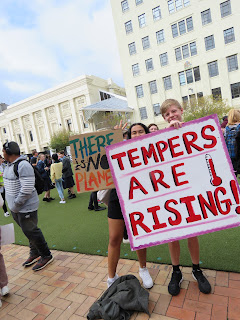I sent
this to the NZ Rugby Union Board 24th April 2019. The topic line
said to the Rugby Union “Please forward to the Board Chair (Brent) and
Crusaders (Grant) and all board members”
To Brent Impey, Grant Jarrold and
your boards,
This is an open letter to you and other rugby fans.
I am 73-year-old All Blacks, Canterbury and
Crusaders fan. I’ve been a one-eyed Cantabrian since I began, as a child,
listening to the games on the radio and/or standing on the embankment at
Lancaster Park with my Dad. I also expected my younger son to play for
Canterbury – he played for Shirley, and once, in a junior team, played for
Canterbury. Sadly, his coach-father died when he was 12 and then, at 15, a
motorbike accident saw his leg being ripped off at the groin – killing his
dreams and expectations of a rugby future.
The reason I’m writing is that I want to have my
say as I’ve not signed any petition or been included in any poll. I also
believe a letter is of more value than a signature.
I want the name ‘Crusaders’ to change. I’m glad the
extras have been stopped and I hope the horse and knights will never return -
in any form. I was disturbed, no - actually I was horrified - when the team was
named in the mid-90s but put it down to ignorance of history and assumed most
people/fans would be ignorant too.
That passive acceptance on my part changed in an
instant when the white supremacist terrorist killed Muslims in my home city. (I
live in Wellington now but you can take the girl out of the city but not the
city out of the girl).
You don’t need a history lesson from me, others
more qualified will have advised you. I also don’t believe a nation-wide poll
should drive your decision either. Just do the right thing for all of us – a
decision you will be able to capitalise on, as proof of a team of honourable,
inclusive, diverse, people.
Please do not consult the local mosques unless the
first question is – do you want to have a say about a name change? You would
just be setting them up for more vitriol when you change the name – people not
wanting a name change will blame them entirely.
Without a name change, this topic will come up
every year. Will fans like me be able to wear our jerseys with pride? Not
really. We will still love our team no matter its name or rankings but keeping
the name and branding will cause issues for us fans too. If we can't wear our
red and black with pride, I suspect many will lose interest.
Please consider these points when you vote about
the name change . . . long before the new season starts, so we, and
you can buy the new red and black kit!
I look forward to hearing from you.
Heather Hapeta
Here’s their bounced back reply: 24th April – I’ve received nothing
more.
Kia ora,
Thanks for contacting New Zealand Rugby.
We greatly appreciate you taking the time to email us, we'll do our best
to respond to you as soon as possible, however,
we are
currently experiencing a high volume of emails and may require an extra
few days.
For all other questions and queries, we'll come back to you as
soon as possible.
Nga Mihi

































